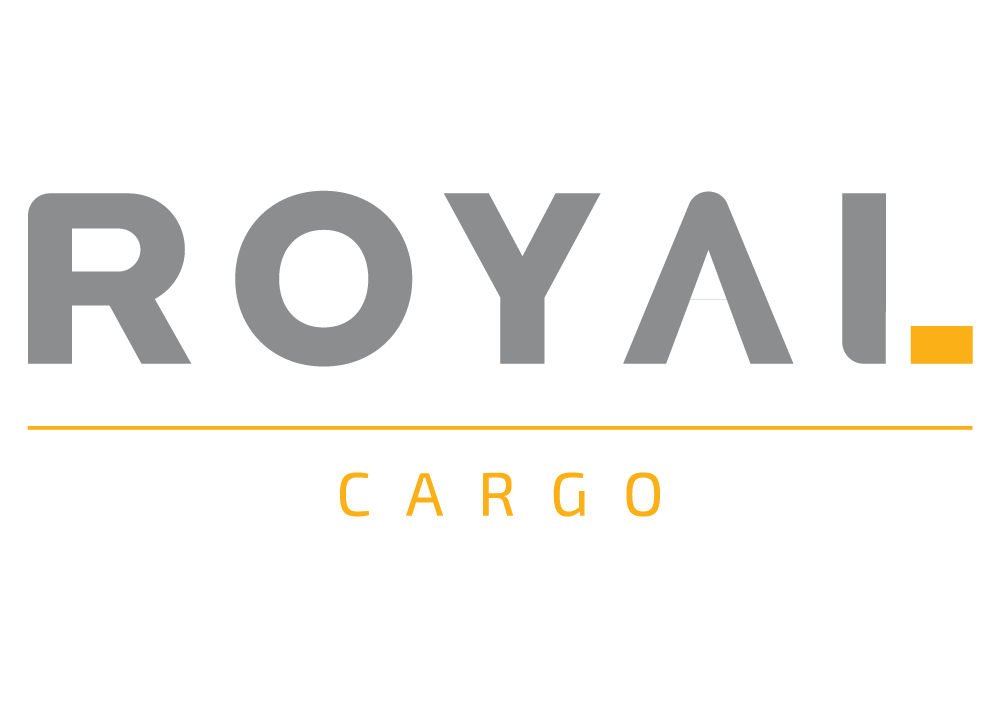
The Price of Precision — Why a Premium Logistics Provider Is Worth
(What exporters and high-volume shippers stand to gain—and what they risk without it.)
Logistics Is Not a Cost Centre — It’s Risk Management
A company’s logistics system isn’t merely about moving freight—it’s a critical pillar of business operations. On-time performance (OTIF), delivery accuracy and end-to-end visibility directly affect customer satisfaction, the fulfilment of contractual/SLA obligations, and the long-term strength of partner relationships.
Even so, many decision-makers evaluate logistics partners primarily on price—when the real question isn’t “what does the shipment cost?” but “what will it cost if it doesn’t arrive on time?” A late delivery, communication gap or documentation error can outweigh the freight charge many times over—OTIF/SLA penalties, demurrage and detention, storage, rework/rebooking, line stoppages, expedited recovery and lost sales—especially in export-led or high-volume operations.
A premium logistics provider does more than move freight—it underwrites your business continuity with predictable processes, SLA-backed performance and assured capacity in environments where a single error is not just an operational hiccup but a competitive disadvantage.
The question isn’t whether a premium partner is worth it—it’s the risk you expose your business to by not choosing one.
What does premium logistics actually mean in practice?
In our view, premium logistics isn’t about paying more or moving faster. It’s a service mindset—predictability, accountability and reliability. When you choose such a partner, you’re not just buying transport; you’re securing a stable, predictable logistics operation you can plan around.
Egy prémium szolgáltatóval való együttműködés jellemzői:
- Transparent, proactive communication — real-time visibility, a dedicated single point of contact (SPOC), and feedback at every stage.
- Transparent, proactive communication – real-time information, contact person available, feedback at every step.
- Forward-looking, consultative approach — beyond execution, it recommends improvements, optimises processes and responds to the client’s operating model and business rules.
- Handling complex transport requirements — international lanes, multi-party coordination and specialised cargo handling.
At Royal Cargo, this mindset isn’t an add-on—it’s our standard. With your interests front and centre, we select the best-fit solution for every transport task within the given constraints—optimising for lead time, routing/lane selection and resource/capacity utilisation.
This flexibility isn’t ad hoc adaptation—it’s an operating principle that, on every engagement, targets the optimal balance between the shortest lead time and cost efficiency.
International sources back this up: according to DCL Corp, premium logistics partners deliver lower error rates and a more reliable customer experience—making them more cost-effective over the long term than cheaper but unpredictable providers.
The True Cost of “Saving Money”: Hidden Costs of a Low-Cost Logistics Partner
When a company selects a logistics partner on price alone, it’s fixating on the invoice while ignoring the true business cost. Errors and delays don’t just cause operational hiccups—they trigger customer dissatisfaction, SLA breaches and chargebacks, demurrage/detention, costly expedites and rework, and can ultimately cost you a key account.
The most common hidden costs:
- Delayed delivery → production downtime/line stoppage, idle-time costs, lost sales, SLA/contract penalties.
- Communication uncertainty → lack of timely updates, inability to replan, delays to strategic decisions.
- Documentation deficiencies → customs clearance issues, administrative errors, regulatory holds/detentions.
- Lack of risk transfer → inadequate carrier liability/insurance cover, no post-incident transparency (root-cause analysis, CAPA).
By contrast, a premium logistics partner commits up front—SLA-backed—to how it will perform and at what level, and takes full accountability for the engagement. In this model, the price you pay isn’t just the haulage cost; it’s the guarantee of predictable, well-governed operations end to end.
Supply Chain Dive’s analysis reaches the same conclusion: premium logistics isn’t a luxury—it’s a risk-mitigating investment, especially for international, deadline-sensitive or complex shipments.
The Real Value of a Premium Partner: SLAs, Flexibility and Accountability
A truly reliable logistics provider doesn’t just make commitments—it delivers them in a measurable, transparent and traceable (auditable) manner. The defining mark of a premium partner is that it thinks and acts proactively, with performance anchored in a mutually agreed Service Level Agreement (SLA).
An SLA (Service Level Agreement) turns promises into contracted, business-level performance commitments. This is crucial in B2B environments, where a single failure at any point in the logistics chain can trigger a domino effect with downstream impacts.
Royal Cargo pays special attention when working with all partners:
- strict adherence to agreed delivery deadlines and time windows (OTD/OTIF)
- a defined cadence for real-time status updates and progress reporting (milestones & exceptions)
- rapid, client-first handling of ad-hoc changes (re-routing, rescheduling, order amendments) with minimal disruption to your operations.
Here, flexibility doesn’t mean saying yes to anything at any time—it means selecting the optimal transport solution for the project’s constraints, with the client’s business interests front and centre. This may include:
- alternative routes/lanes,
- capacity reallocation/redeployment,
- advanced coordination with network partners (carriers, terminals, customs, warehouses),
- proactive, closed-loop feedback at every stage of the end-to-end shipment lifecycle (milestones & exceptions),
International examples—Overflo and FirstMile—show that premium 3PLs do more than move freight; they think commercially. Clients don’t just hire a carrier—they gain a strategic logistics partner that underpins supply chain reliability.
International Expertise and Complex Transport Management
The value of a premium logistics partner is most evident when a move spans multiple countries, involves customs processes or requires specialised handling. In these environments, a basic provider often cannot deliver the required response times, regulatory compliance or orchestration agility.
Royal Cargo’s operations are purpose-built for high-volume, cross-border transport and the handling of import–export shipments. Accordingly, we manage on a daily basis:
- international transport permits and authorisations,
- customs clearance documentation and declarations,
- country-specific regulatory environments (multi-jurisdictional compliance),
- multi-party shipment coordination across manufacturers, suppliers and consignees,
Our service quality is validated by independent accreditations: Royal Cargo is certified to ISO 9001:2015, evidencing disciplined processes, customer focus and continuous improvement. We also hold a Dun & Bradstreet AAA (Bronze) rating—an established indicator of financial stability for business partners.
For prospective partners—with sector alignment or specialised transport requirements—Royal Cargo offers:
- access to case studies,
- operational walk-throughs and demonstrations,
- a one-to-one consultation to jointly assess and optimise your company’s logistics processes.
Premium service isn’t just operational excellence; it also provides the trust, transparency and auditability required for confident, well-governed decision-making.
When You Shouldn’t Compromise
While every business pursues cost efficiency, there are transport scenarios where choosing the lowest price carries unacceptable business risk. In that context, a premium logistics partner isn’t a cost line—it’s a risk-mitigating investment.
Choosing a premium provider is particularly warranted when:
- the shipment is time-sensitive or deadline-bound, where delay carries financial or contractual consequences;
- the cargo is high-value or requires special handling—e.g., machinery, critical spare parts, medical devices or export-controlled goods;
- the move spans multiple countries, requires customs clearance and multi-party coordination;
- the principal commits to a level of service to its own customer (e.g. just-in-time delivery, contractual SLA) that it cannot afford not to be able to deliver due to an external failure.
In collaborations with international partners—distributors, suppliers or end users—your logistics performance is part of your brand. Compromising on quality at this touchpoint jeopardises the reliability of your business relationships.
As Royal Cargo’s operations demonstrate, safety, predictability and clear accountability are paramount in every complex transport scenario—yet price-driven competition too often sidelines these essentials.
Logistics is no longer a back-office function—it’s a frontline business driver. A single delay, information gap or poorly chosen partner can trigger a domino effect across sales, production and customer relationships. In this environment, the question isn’t whether a premium provider costs more, but how much your business stands to lose if you don’t choose one.
At Royal Cargo, reliability, flexibility, transparency and international expertise aren’t add-ons—they’re built into how we operate. Clients don’t just get transport; they get an end-to-end logistics partner that provides a stable business backbone and predictable operations—from the first RFQ through to on-time delivery at destination.
Delivery is the first critical touchpoint in the customer experience!
If you don’t compromise on quality at this touchpoint, you win more than a shipment—you earn trust and a competitive advantage.
Author
royal_adminRelated posts
What criteria should you use to choose a reliable freight partner?
The True Cost of Choosing the Wrong Logistics Partner Selecting a transport part


